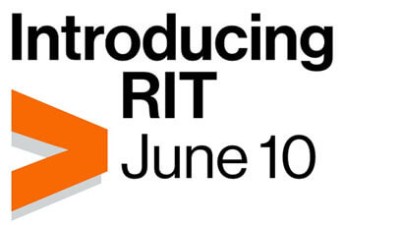RIT Hosts Three-Minute Thesis Competition: Ph.D. Students Showcase Innovative Research
Rochester Institute of Technology recently joined 900 universities in participating in the three-minute thesis contest. RIT Ph.D. candidate student competitors were to present their thesis in under three minutes in a language accessible to all, following a rigorous set of rules assigned by The University of Queensland in Australia, the founders of the competition, while engaging in both delivery and body language. The committee of reviewers received more than twenty submissions in the preliminary round and in two rounds lowered it down to nine and finally the final six.

Diane C. Slusarski opening the three-minute thesis competition
The associate provost and dean of the Graduate School, Diane Slusarsrki, the announcer for the competition, opened the event by presenting the esteemed judges. Dr. David Munson, RIT President, Cassandra Nickels, Associate Vice President Marketing Strategy, Frank Sklarsky, Alumnus and RIT Board of Trustee Member, and Vanessa J. Herman, Vice President for Government and Community Relations.
Proceeding the introductions of the judges, came the long-awaited prizes of what each student would be competing for: The grand first place prize of $1,500 and the chance to compete in the regional three-minute thesis against other institutions. The runner-up prize was $750 and lastly the most unique prize, the people’s choice prize of $250 sponsored by the Eugene H. Fram Chair in Applied Critical Thinking. The audience was given a ballot and asked to select one competitor of their choice they felt should win; at the end of the competition attendees would cast their ballots.
Ms. Slusarskri concluded her opening by wishing the judges good luck with much enthusiasm, “It will not be easy; I’ve seen their preliminary,” she said before exiting the stage, for the contestants to present.
Sai Sri Nidhi Munaganuru, Mechanical and Industrial Engineering, was the first to present her thesis of Can carbon composite 3D printing technology revolutionize the world? Her presentation was seamless and confident as she presented her technology of combining weaving metal 3D printing and metal sheets and their future as material for spacecrafts and aircrafts.
Kristina Chomiak, Sustainability, was second to present her thesis of Unraveling Trends of Plastic Pollution in the Wasted Food Stream. She presented an idea of how to preserve the benefit of plastic while keeping the waste out of our food stream.
Jan Wasilewki, Imaging Science, was the third presenter. His thesis introduced AI-Powered Crop Protection: Detecting Plant Diseases before they Strike. His technology uses AI to detect colors in plants we cannot see, to catch diseases in plants early. His overall stage presence and confidence left a lasting effect on the audience.
Khushbu Zope, Mechanical and Industrial Engineering, was the fourth. Her thesis involved Predicting the Future of 3D Printed Metal Parts. Her technology suggested the capabilities of 3D printing metal parts, such as screws and knowing their internal structure before they are created by creating simulation modeling.
Mehran Mansouri, Biomedical and Chemical Engineering, followed Ms. Zope as the fifth presenter. His thesis explored the topographical memory in cell migration, if they can remember their terrain.
Arianna Giguere, Imaging Science, was the last to present her thesis on technology that would help those who suffer from cortical blindness caused by strokes with VR. Currently, there is no treatment for this type of vision loss, but she is optimistic with this technology there is hope for a new form of recovery.

Attendees casting their vote for People's Choice Award
The competition ended leaving the judges and audience with a hard decision to make, who should win? Each competitor presented clearly and consciously in unique and different ways. The attendees, including judges and contestants flooded out into the main lobby for a short recession. The audience filled the ballot box with their choices, some still deliberating on who they should choose. The room filled with anticipation, with the votes tallied, all we could do was wait.
The judges deliberated for only 30 minutes before they came back with their decision. After giving out awards to the finalist and honorable mentions, they announced the runner-up, Arianna Giguere, Imaging Science, Navigating Vision Loss: Driving Toward Recovery with VR. Then finally announced the first-place prize and people’s choice winner Sai Sri Nidhi Munaganuru, Mechanical and Industrial Engineering, Can carbon composite 3D printing technology revolutionize the world?














